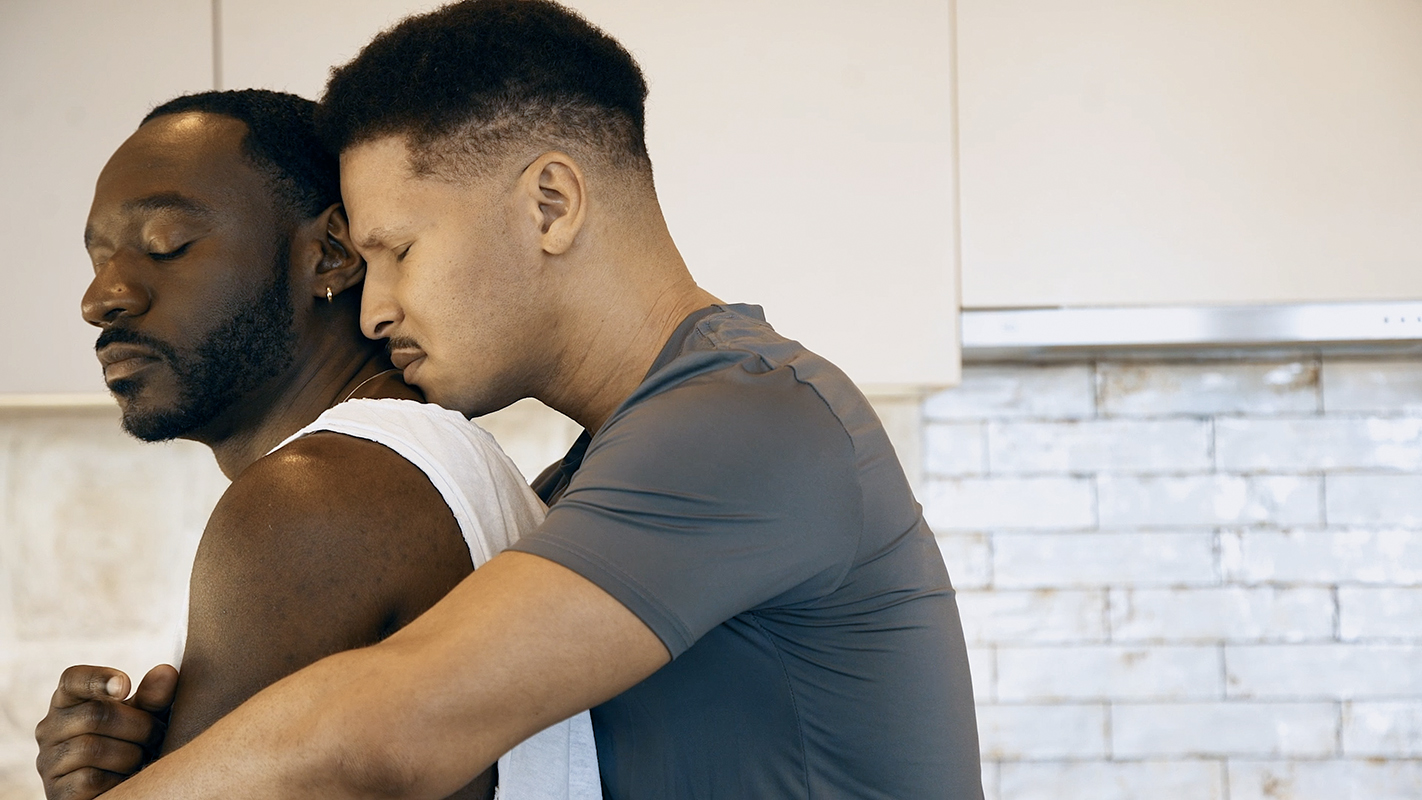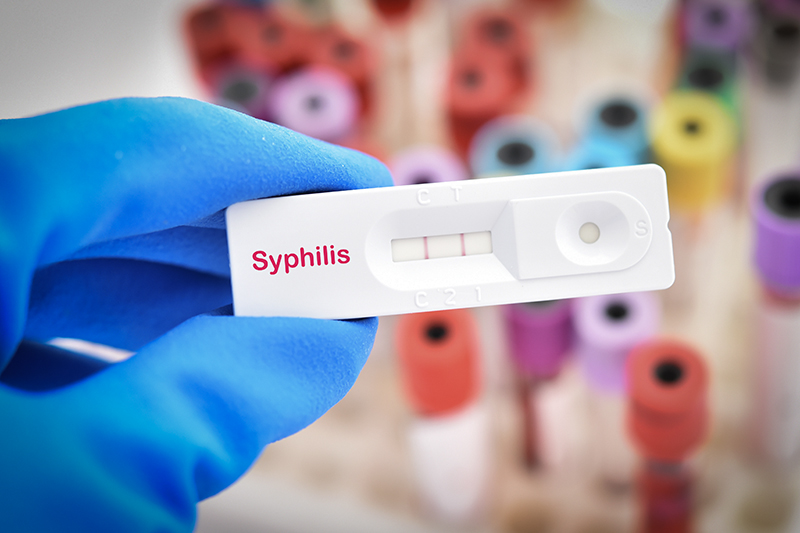National HIV Testing Day: What You Need To Know
Monday, June 27, is National HIV Testing Day, and here's why experts encourage you to know your status.

“Everyone between the ages of 13 and 64 should get tested for HIV at least once as part of routine health care,” advises the Centers for Disease Control and Prevention’s National HIV Testing Day website.
The site further recommends that “those with certain ongoing risk factors — such as having more than one sex partner since their last HIV test or having sex with someone whose sexual history they don’t know — should get tested annually.” It adds that sexually active gay and bisexual men might benefit from tests every 3 to 6 months.
To help promote both testing and awareness, National HIV Testing Day (NHTD) has been held every June 27 since 1995, when it was first established by the National Association of People With AIDS.
In the ensuing years, it has been overseen by the CDC and the Department of Health and Human Services.
This year’s event falls on Monday. The website HIV.gov calls it “a day to encourage people to get tested for HIV, know their status, and get linked to care and treatment.”
This year’s theme, “HIV Testing is Self-care,” is extra-relevant, “given that self-care has been a particularly important topic during the COVID-19 pandemic.”
Currently, it is estimated that 1.2 million Americans are living with HIV, and that 156,000 unknowingly are carrying the virus.
“More than ever, we need to provide awareness and access to HIV testing, prevention, and treatment,” says Juan Loubriel, Senior Director of Community Health and Wellness at Washington, D.C.’s Whitman-Walker Health. “Every day we should be acting as if it is HIV Testing Day. [But] having a day that stresses the importance of testing and screening is a key step towards our shared goal of ending the HIV epidemic.”
Tonya Williamson, Social Work and Outreach Program Manager for Maryland’s Chase Brexton Health Care, adds that June 27 is much more than a day of awareness.
“Apart from getting tested, people should use it as a day to educate themselves about HIV and other STIs,” she says. “They should take inventory of their own sex practices, and ensure that they are practicing safe sex and engaging in meaningful conversations about what that looks like for them with their partners and/or potential partners.”
HIV disproportionally impacts marginalized groups, especially people of color within the LGBTQ community. Black gay and bisexual men are the most at risk of contracting the virus, according to the CDC.
“HIV and harm reduction relating to HIV seemingly fades away to most of the population,” says Mario Gray, Training and Capacity Building Assistance Manager at Washington, D.C.’s Us Helping Us – People Into Living, which treats people living with HIV/AIDS not only physically, but spiritually. “Black people on the LGBTQ spectrum and Black women are left to suffer, being disproportionately affected.”
Gray says that having a national day earmarked for HIV testing helps alleviate the stigma that still surrounds testing within various population groups.
“Stigma remains,” he says. “From not wanting to discuss sex and sexual history with partners and doctors, and medical mistrust, to just not knowing about it and fear to gain more knowledge. This day gives people the range to ask questions and get tested without the immense amount of stigma that surrounds it.
“Our job at Us Helping Us is to bridge those gaps and ease the fears of people who may have never had a positive health care experience,” he continues. “You have to meet individuals where they are, in a physical sense as well as mentally and emotionally.”
One of the things often addressed when it comes to testing for HIV/AIDS are misconceptions about privacy.
“Some [people] underestimate their level of risk for acquiring HIV and may not access testing services because of this,” says Whitman-Walker’s Loubriel. “There is the fear of information being shared or someone being outed if they test positive for HIV. But all HIV testing is safe, confidential, and protected by federal law under the Health Insurance Portability and Accountability Act.”
Ged Kenslea, Senior Director of Communications at the AIDS Healthcare Foundation, points out that over the years, access to testing has grown easier, including the proliferation of kits for self-testing at home.
“Improved medical technology has made it incredibly easy for people to get tested and get their results [the same day],” says Kenslea. “Often at a site in a community setting, like a mobile testing van, at pop-up testing tents at a Pride celebration or other events, or, in AHF’s case, at one of our Out of the Closet thrift stores.”
Kenslea adds, “If people are sexually active, then HIV testing should be a part of a routine, regular health regimen of theirs — similar to annual visits to the dentist or an annual physical.”
Kenslea also notes that LGBTQ people can provide “a great service on and around National HIV Testing Day and throughout Pride celebrations and Pride month by encouraging their partners, friends, and others to also get tested for HIV.”
Chase Brexton’s Williamson adds that “the only way you can truly know [if you’re HIV positive] is by getting tested.” A positive diagnosis means that appropriate care — both physical and emotional — can be administered.
Although testing positive can be frightening, Williamson notes that it can be seen as a stepping stone to a healthy life.
“A positive diagnosis is no longer the death sentence it was many, many years ago,” she says. “No two people will have the same needs after hearing their result. So, the most important next step after a positive test result is to support the person in that moment.”
Testing and recognizing the need for treatment is the first step to ending the spread of the virus. By overcoming stigmas surrounding contracting the virus, more people will feel comfortable getting tested, and treated.
As Loubriel notes, people who test positive “are still in control of their life, and HIV will not define them. This is a journey that they do not have to face alone.”
For more information about Whitman-Walker’s HIV/AIDS services, visit www.whitman-walker.org.
For more information about UHU’s HIV/AIDS services, visit www.ushelpingus.org.
For more information about Chase-Brexton’s services, visit www.chasebrexton.org.
AHF’s “Know Your Status” public service campaign includes several websites where people can easily get more information, including www.freeHIVtest.net, www.UseACondom.com, and www.FreeSTDCheck.org.
To find HIV testing services near you visit https://gettested.cdc.gov or https://locator.hiv.gov.
Support Metro Weekly’s Journalism
These are challenging times for news organizations. And yet it’s crucial we stay active and provide vital resources and information to both our local readers and the world. So won’t you please take a moment and consider supporting Metro Weekly with a membership? For as little as $5 a month, you can help ensure Metro Weekly magazine and MetroWeekly.com remain free, viable resources as we provide the best, most diverse, culturally-resonant LGBTQ coverage in both the D.C. region and around the world. Memberships come with exclusive perks and discounts, your own personal digital delivery of each week’s magazine (and an archive), access to our Member's Lounge when it launches this fall, and exclusive members-only items like Metro Weekly Membership Mugs and Tote Bags! Check out all our membership levels here and please join us today!























